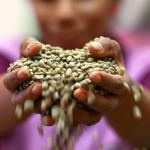The Rotary Social Impact Network: Maximising the Rotary experience

Officially chartered on May 5, 2020, with a membership of 30 Rotary Alumni, the Rotary Social Impact Network (RSIN) is dedicated to creating positive change within the community and within its members.
“Our personalised experience of Rotary is what makes our club innovative and what has brought together community-minded leaders from across the world, covering six countries in four continents,” said Charter President Rebecca Fry.
With a focus on delivering a low-cost, low-time model, this newly visioned club is using the resources its members already have to maximise impact in
the community.
The target audience is 24 to 40-year-olds already engaged with Rotary, who have not yet found a place in the Rotary family that met their needs. Its charter membership boasts 100 per cent Rotary Alumni (or members with involvement in Rotary youth programs), 87 per cent of whom are active or past Rotaractors.
Related news
Dubbo West Community Carols by Candlelight
Celebrate the festive season at Dubbo’s Carols by Candlelight, promising fun, music and the big man himself.
Sanitation solutions in Sumba
By PDG John KevanRotary Club of Mandurah Districts, WA In East Sumba, where the financial capacity to support water and health requirements for villages in remote areas is severely limited, Fair Future Foundation has been successfully providing materials and training to enable villagers to build their water and sanitation facilities for more than 15 years. […]
Queanbeyan delivers U-Turn the Wheel pilot program
Throughout May, the Rotary Club of Queanbeyan, NSW, held the 2024 pilot program of U-Turn the Wheel (UTTW) at three local high schools in Queanbeyan – The Anglican School at Googong, Karabar High School, and Queanbeyan High School. Overall, approximately 125 students took part in the one-day program. Feedback from students and staff was positive, […]
Join our newsletter for the latest updates
"*" indicates required fields


